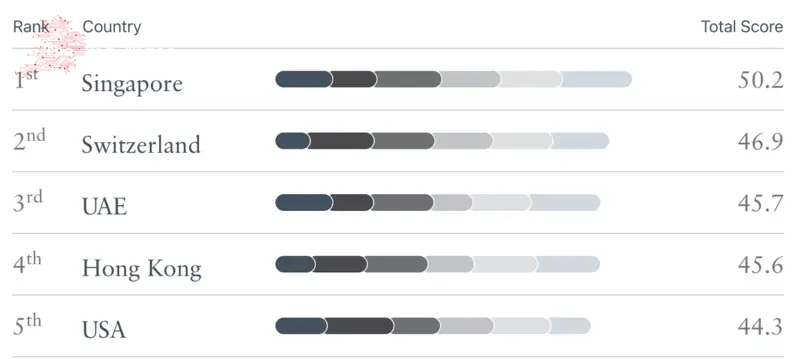Dubai’s mirage: the city might be heaven, but not for crypto entrepreneurs | Opinion
Disclosure: The views and opinions expressed here belong solely to the author and do not represent the views and opinions of crypto.news’ editorial.
Dubai’s crypto industry has been in the spotlight, both in the media and among entrepreneurs: “Emirates announced that it would start accepting Bitcoin as a payment method,” “UAE government strives to fully transition its operations to blockchain by 2030,” “Binance’s CZ moves to Dubai, states that Paris and Dubai offices are Binance global hubs.”
The 2020-2021 Bitcoin (BTC) boom, startup financing spree, and the tax haven fame made the city a synonym for everything crypto-related. Think crypto, say Dubai—a sentiment echoed by PwC’s reports of UAE’s crypto transaction volume growing fivefold between 2020 and 2021, showing an annual $25 billion turnover in 2022.
Today, the region hosts a plethora of top industry conferences, free trade zones, and thousands of Instagram and X (former Twitter) influencers. Yet, as we wrap up 2023, this is more of a veneer as Dubai rides the wave of post-pandemic media hype. If we look past the surface, it’s getting tougher to secure funding, launch crypto projects, and deal with the regulatory swings that can’t seem to decide between hands-off and heavy-handed.
The initial allure
Dubai was among the early ones to jump on the crypto hype train, starting with the announcement of the Dubai Blockchain Strategy in 2016 and culminating with the Dubai Multi-Commodities Crypto Center (DMCC) launch in 2021. Its timing was perfect: right in time to enjoy the bull runs and the tell-tale of universal crypto adoption while avoiding the downturns of the crypto winter and growing competition from the Gulf States.
COVID-19 brought in favorable tax regulations, lax pandemic restrictions, and booming seed and late-stage investments—a perfect recipe for attracting the tech folk. Just look at Pitchbook or Crunchbase data: more than 100 crypto rounds closed in 2021 and 2022, with total funding surging from $42 to $97 million. Equity markets are also thriving: in 2022, UAE’s fraction of global IPOs skyrocketed from 2 to 23 percent year-on-year, primarily due to fintech’s contribution.
The UAE government grabbed the opportunity: from Emirates Airline to the public transport system, from healthcare to web3 conferences; by September 2023, Dubai proudly took one of the leading roles in global blockchain adoption—or so it seemed.

Crypto adoption index, 2023 | Source: Henley & Partners
Reality check
Despite the excitement, the government’s strategy—establishing numerous free trade zones, incubators, regulatory bodies, initiatives, and generous funding—lacks transparency. An attempt to scrutinize Dubai’s blockchain projects reveals a gap: out of 20 high-profile announcements, 15 have so far amounted to nothing more than just that, announcements without any substantial results.
You can definitely sense that in the air. Yes, the deal numbers are still growing, but Pitchbook can’t show you the whole picture: for every developer who made it to the end of the pipeline, there are tens who are forever stuck at the top of the funnel. Dubai’s blockchain adoption is not yet driven by efficiency but by the sheer supply of projects and builders’ enthusiasm.
Sadly, enthusiasm is not infinite. As I participate in yet another crypto conference, I can’t help but notice the same participants I’ve seen here for the last two years—a worrying sign of stagnation. Existing builders are struggling to get funding (and the median valuation, of course, has also declined), while new developers choose more predictable and less oversaturated environments.
Another reason for the stagnation is the post-pandemic brain drain: it’s easy to attract people who spend in crypto by imposing a 0% capital gains tax, but it’s not so easy to retain professionals building products from scratch.
Then, of course, there is the matter of regulation, and the issue is not with the tightening regulatory field per se. Businesses can loom even in high-interest rates or strictly conservative environments—what they need, however, is predictability. Currently, VARA is actively working on creating a thriving legal space in Dubai, but there is still uncertainty in the space, which can be stressful for the market players.
Assessing opportunities and challenges
While Dubai’s Gulf neighbors are catching up in the crypto game, even without the head start the city had, another player is emerging. Even lacking Dubai’s tax benefits or headline-grabbing moves, the Balkans are bringing transparency and consistency to the table. For instance, issuing crypto assets in the Balkans is much easier—you just need tax compliance, a license from the monetary authorities, and proof of anti-financial fraud monitoring.
So, where does Dubai stand in the grand scheme? The city is still a hotspot for crypto traders and those looking to spend their crypto wealth, thanks to its favorable tax policies. However, when it comes to laying down long-term business foundations, Dubai presents a mixed bag. The city’s allure is undeniable, but the reality of setting up and sustaining a crypto business there warrants a cautious approach. It’s a blend of opportunity and challenge—ideal for some, but for others, more straightforward regions like the Balkans might be a wiser choice. As Dubai continues to evolve, only time will tell if it can balance its flashy appeal with the substance entrepreneurs need.

Comments
Post a Comment